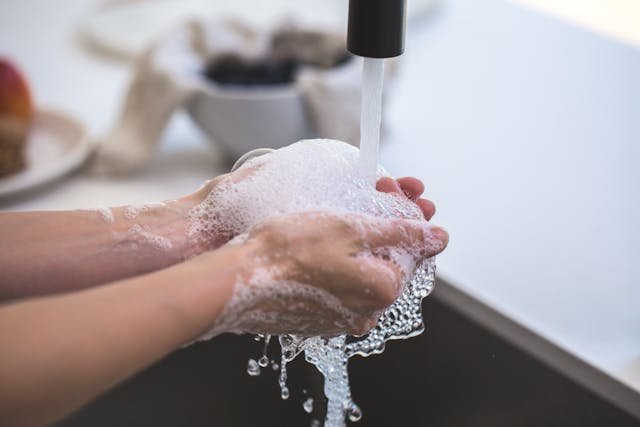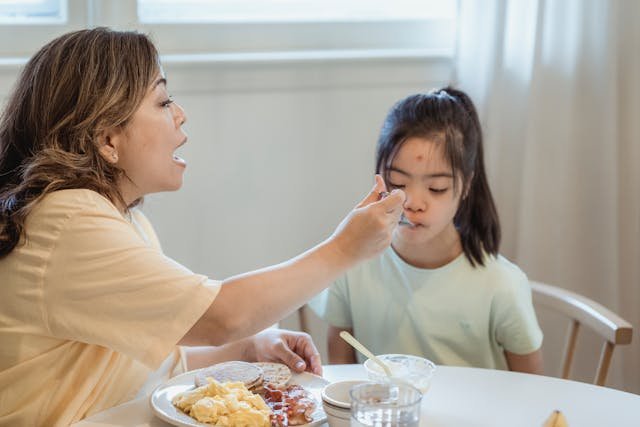Menstruation at an early age can be a challenging time for a girl child and her parents.
As the onset of menstruation happens earlier for many girls today, it’s crucial to provide the right support, education, and understanding to help them navigate this significant change.
In this article, we will explore 15 powerful tips to help your child through early-age menstruation, ensuring she feels confident, informed, and cared for.
Understanding Early-Age Menstruation
What Is Early Age Menstruation?
Early-age menstruation, also known as precocious puberty, refers to the onset of menstrual periods before age 8 or 9.
While this can be a normal variation, it often requires additional emotional and educational support to help a young girl child understand and manage her new bodily changes.
Why Early Age Menstruation Occurs
There are various factors contributing to early-age menstruation, including genetics, environmental influences, and overall health.
Understanding the reasons behind early menstruation can help parents better prepare and support their daughters through this transition.
Table of Contents
1. Educate Yourself First
The Importance of Parental Knowledge
Before discussing menstruation with your girl child, it’s essential for parents to educate themselves.
Understanding the biological, emotional, and practical aspects of menstruation will allow you to provide accurate information and answer any questions confidently.
Resources for Parents
- Books and Articles: Look for reputable books and online articles about early-age menstruation.
- Healthcare Professionals: Consult your child’s pediatrician for medical insights and advice.
2. Start the Conversation Early

Preparing Your Child
Starting the conversation about menstruation early helps your girl child feel more prepared and less anxious about the changes she will experience.
Use age-appropriate language and be open to questions.
Tips for an Open Dialogue
- Use Everyday Opportunities: Use daily life moments to bring up the topic casually.
- Be Honest and Clear: Provide straightforward answers and avoid euphemisms that might confuse her.
3. Use Age-Appropriate Language
Communicating Effectively
It’s vital to use language that your girl child can understand when discussing menstruation.
Simplify complex concepts without compromising the accuracy of information.
Examples of Simple Explanations
- Biological Process: “Menstruation is when your body releases a little bit of blood every month. It’s a sign that your body is growing up.”
- Personal Hygiene: “You’ll need to use pads or tampons to keep yourself clean and comfortable.”
4. Normalize the Experience

Reducing Stigma and Fear
Normalizing menstruation helps reduce any stigma or fear your girl child might feel.
Make sure she knows that menstruation is a natural and normal part of growing up.
Ways to Normalize Menstruation
- Share Personal Stories: If appropriate, share your own experiences with menstruation.
- Include Family Discussions: Normalize the topic by including it in family conversations when relevant.
5. Teach Proper Hygiene

Importance of Hygiene
Teaching proper menstrual hygiene is crucial for your girl child’s health and comfort.
Emphasize the importance of changing sanitary products regularly and maintaining cleanliness.
Hygiene Tips
- Handwashing: Always wash hands before and after changing pads or tampons.
- Regular Changing: Change pads or tampons every 4-6 hours to prevent discomfort and infections.
- Shower Daily: Encourage a daily shower to maintain overall cleanliness.
6. Provide the Right Products
Choosing Menstrual Products
Various menstrual products are available, and it’s important to help your girl child find what works best for her.
Options include pads, tampons, and menstrual cups.
Introducing Products
- Start with Pads: Pads are often easier for young girls to manage initially.
- Explain Usage: Demonstrate how to use each product and discuss their pros and cons.
7. Create a Menstrual Kit
Preparing for School and Outings
Creating a menstrual kit for your girl child ensures she is always prepared.
This can be particularly reassuring when she’s at school or away from home.
Kit Essentials
- Sanitary Products: Include pads, tampons, or menstrual cups.
- Wipes: Unscented wipes for quick clean-ups.
- Spare Underwear: In case of any leaks.
- Pain Relief: A small pack of pain relievers, if needed.
8. Discuss Physical Changes

Addressing Bodily Changes
Other physical changes like breast development and body hair growth often accompany menstruation.
Discuss these changes to help your girl child understand her developing body.
Conversation Tips
- Use Diagrams: Visual aids can help explain the changes.
- Reassure Normalcy: Emphasize that these changes are a normal part of puberty.
9. Monitor Emotional Well-being

Emotional Impact of Menstruation
The onset of menstruation can bring about emotional changes due to hormonal fluctuations.
Monitor your girl child’s emotional well-being and provide support as needed.
Supporting Emotional Health
- Open Communication: Encourage your child to express her feelings.
- Offer Reassurance: Reassure her that mood swings and emotional changes are normal.
10. Address Pain Management

Dealing with Menstrual Pain
Menstrual cramps can be uncomfortable for many young girls.
Teaching your child how to manage pain can help her cope better during her periods.
Pain Relief Methods
- Warm Compress: Use a warm compress on the lower abdomen.
- Over-the-counter Medications: Consider mild pain relievers like ibuprofen, but consult a doctor first.
- Gentle Exercise: Encourage light physical activity to alleviate cramps.
11. Encourage a Balanced Diet

Nutritional Support
A balanced diet can play a significant role in managing the symptoms of early-age menstruation.
Proper nutrition helps in maintaining energy levels and can alleviate some discomfort associated with menstruation.
Dietary Tips
- Iron-Rich Foods: Include iron-rich foods like spinach, lentils, and lean meats to prevent iron deficiency.
- Calcium and Vitamin D: Encourage consumption of dairy products or fortified alternatives for bone health.
- Hydration: Ensure she drinks plenty of water to stay hydrated.
12. Foster Physical Activity

Benefits of Exercise
Regular physical activity can help manage menstrual symptoms and improve overall well-being.
Exercise releases endorphins, which can help reduce pain and improve mood.
Suggested Activities
- Light Cardio: Activities like walking, swimming, or cycling.
- Yoga: Gentle yoga poses can help alleviate cramps and promote relaxation.
- Playtime: Encourage regular play and physical activities that she enjoys.
13. Prepare for Social Situations
Managing Periods at Schools and Public Places
Being prepared for menstruation in social situations is important for your girlchild’s confidence and comfort.
Discuss strategies for managing her period when she is away from home.
Practical Tips
- Discreet Packing: Teach her how to carry menstrual products in her bag discreetly.
- School Resources: Inform her about available resources at school, like the nurse’s office.
- Emergency Plan: Create a plan for unexpected situations, like an extra set of clothes in her school locker.
14. Educate About Menstrual Health

Understanding Menstrual Health
Educating your girl child about menstrual health is crucial for her long-term well-being.
This includes recognizing what is normal and when to seek medical advice.
Key Topics to Cover
- Cycle Regularity: Explain that it’s normal for periods to be irregular at first but monitor for extreme irregularities.
- Signs of Concern: Teach her to recognize signs that warrant a visit to the doctor, such as very heavy bleeding or severe pain.
- Healthy Habits: Encourage maintaining a menstrual diary to track her cycle and symptoms.
15. Be a Supportive Presence
Providing Emotional and Practical Support
Being a supportive and understanding presence can make a significant difference in how your girl child experiences early age menstruation.
Offer your support consistently and ensure she knows she can come to you with any concerns.
How to Be Supportive
- Listen Actively: Be an active listener to her worries and questions.
- Provide Reassurance: Continually reassure her that what she’s experiencing is a natural part of growing up.
- Be Available: Make it clear that she can come to you anytime she needs advice or support.
Conclusion
Early age menstruation can be a complex and challenging time for a young girl child, but with the right support and guidance, it can also be a positive and empowering experience.
By educating yourself, starting the conversation early, using age-appropriate language, normalizing the experience, teaching proper hygiene, creating a menstrual kit, and being a supportive presence, you can help your child navigate this significant milestone with confidence and ease.
Remember, every girl’s experience with menstruation is unique.
Stay patient, open, and responsive to your child’s needs as she embarks on this new phase of her life.
With your support, she will be better equipped to manage her menstruation and embrace the changes that come with growing up.


